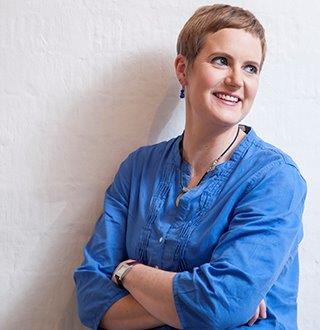Latest News Archive
Please select Category, Year, and then Month to display items
![]()
#UFSupdate (18 March 2020): UFS IMPLEMENTS MEASURES TO MINIMISE RISK OF COVID-19 TO STAFF
STATEMENT BY PROF FRANCIS PETERSEN, RECTOR AND VICE-CHANCELLOR
The executive management of the University of the Free State (UFS) welcomes the announcement of Dr Blade Nzimande, Minister of Higher Education, Science and Technology on 17 March 2020 that all post-school training institutions will have an early recess, starting on 18 March 2020. The Minister’s directive that universities should minimise risk of COVID-19 to all its staff during this time is also welcomed.
The announcement of Dr Nzimande is in line with the university’s decision on 16 March 2020 to suspend the academic programme as from 17 March 2020 and to resume it again on 14 April 2020.
It is important for us all to know that this is not business as usual, and that different thinking is required. Responsible citizenship is one of the crucial elements the world has increasingly been experiencing for the past few weeks. This is why we must act out our responsibility towards one another by focusing on ways in which social distancing can be achieved – especially during this low-risk period that South Africa is still experiencing. This is one of the reasons that informed the university’s decision on 16 March 2020 week to suspend the academic programme and also for students to vacate the residences by 20 March 2020.
The health and well-being of our staff members are equally important. The university’s Employee Task Team that was established on 16 March 2020 analysed options for the continuation of university operations during the recess period. These options were submitted to the executive management, discussed with the Chairperson of the UFS Council and approved on 18 March 2020.
Staff members who have children at school and pre-school may work from home on 19 and 20 March 2020. For the period 23 March 2020 to 13 April 2020, the number of staff members present on all three campuses will be reduced to a minimum and staff members may be allowed to work from home where practically possible.
Arrangements have been made to accommodate those staff members who are performing services which cannot be done from home (such as cleaning, gardening, maintenance, sports, etc) in a flexible and reasonable way. Similar arrangements will be made with office-based support services staff, prioritising institutional needs and based on humane and personal circumstances. Academic staff have been requested to ensure that the online learning materials are finalised and made available for the online learning platform.
The decision for employees to work from home is based on the premise that all employees are deemed to be at work from 23 March 2020 to 13 April 2020. This requires staff members to be available and contactable by line managers at all times during the university’s normal working hours.
I am comfortable that these measures will alleviate the concerns from our staff regarding the spreading of COVID-19 and the risk to themselves without compromising university operations.
Prof F W Petersen
Rector and Vice-Chancellor
University of the Free State
#Women'sMonth: PSP provides scholarly support system for Prof Wilson-Strydom
2017-08-17

Prof Merridy Wilson-Strydom loves asking questions and
therefore has a strong focus on research.
She also enjoys supervising PhD students.
Photo: Sonia Small
Publishing her first book and receiving a rating from the National Research Foundation (NRF) are career highlights for Prof Merridy Wilson-Strydom. As an emerging scholar, the Prestige Scholars Programme (PSP) of the University of the Free State (UFS) played an important role in reaching these goals.
According to the Associate Professor in the Centre for Research on Higher Education and Development, the PSP provided an important scholarly support system, both through the coordinators and the other researchers who are part of the programme.
Writing retreats made book possible
“I found the support and advice provided during the process of applying for funding and rating really helpful,” she says about receiving a NRF C2 rating, based on her work over the past eight years.
She compliments the PSP writing retreats, which “provided a wonderful space for writing and it was during the writing retreats that I did a lot of the writing for my book that was published by Routledge in 2015.” Her book, University Access and Success: Capabilities, Diversity and Social Justice, moving back into academia from institutional research, working closely with undergraduate students as research participants, and postgraduate supervision, are all highlights of her work.
Her book makes a valuable contribution to higher education literature related to access and transition to universities. But, contrary to the mainstream approaches to access which rely on school performance and admissions tests, she poses the issue of social justice at the centre of the analysis.
Student project produces E-book
Another project headed by her and funded by the NRF Thuthuka Programme, was a study to understand the lives of 40 undergraduate students (on the UFS Bloemfontein Campus) who attended township high schools. The study had a particular focus on identifying institutional practices that either enable or constrain students’ capabilities for success in undergraduate study.
One of the outputs was the writing of an E-book called In our own words: Perspectives on being a student. It was written by 30 undergraduate students and the purpose was to provide a platform for students to tell their own stories about life as a student.